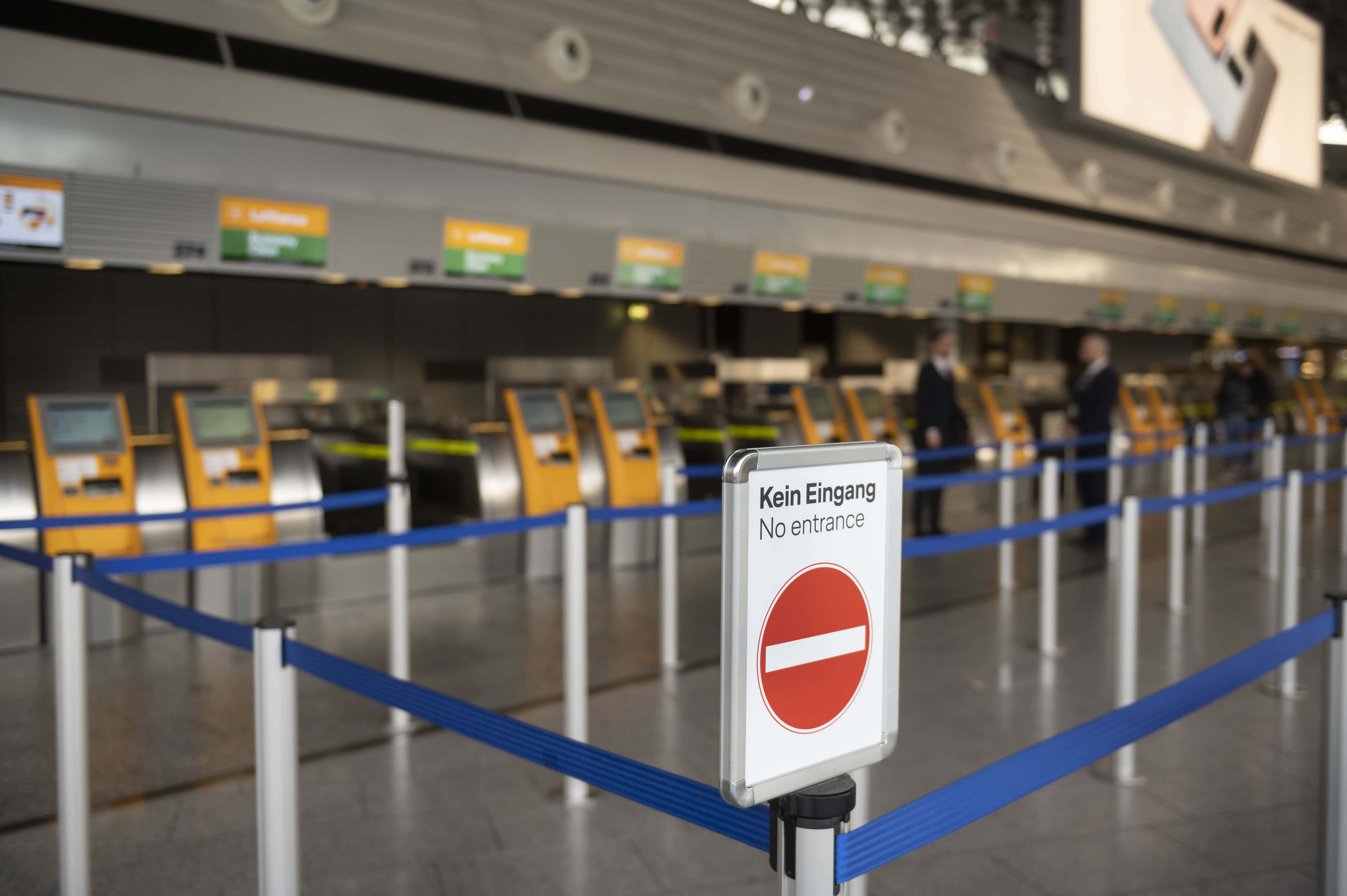Coronavirus pandemic: US airline industry seeks $50B bailout after 'dramatic decline in demand'

The number of novel coronavirus (COVID-19) cases continues to rise with at least 182,000 infected globally and over 7,000 confirmed deaths. With experts saying the vaccine could take 12-18 months to be ready for mass production, governments across the world are taking measures to contain the virus from spreading.
One of the measures includes sweeping travel bans across the world. The United States has banned flights from Europe and the United Kingdom. Saudi Arabia and the United Arab Emirates have announced ceasing all international air travel. Canada has announced it will deny entry to all non-residents, except those from the US.
Meanwhile, Airlines for America, which represents major carriers including American Airlines, Delta and United, is seeking a $50 billion bailout package from the US government. "The rapid spread of Covid-19, along with the government and business-imposed restrictions on air travel, are having an unprecedented and debilitating impact on US airlines. Carriers have seen a dramatic decline in demand, which is getting worse by the day," Airlines for America said in a statement.
In March, the International Air Transport Association (IATA) had put out an analysis that forecasted a loss of at least $113B for the airline industry. Since then, more countries have reported confirmed COVID-19 cases and have instituted travel bans.
Now, the Australian consultancy firm, the CAPA Centre for Aviation, has put out a study that predicts that most of the airlines in the world will go bankrupt by May this year, should the current trend continue. CAPA's press release states, "Demand is drying up in ways that are completely unprecedented. Normality is not yet on the horizon."

CAPA says that governments across the world are failing to cooperate with the airline industry. It said, "Each nation is adopting the solution that appears best suited to it, right or wrong, without consideration of its neighbors or trading partners." CAPA also added a dig at President Donald Trump regarding his announcement of the European travel ban, saying, "He didn’t even advise his European government counterparts in advance, let alone consult with them."
CAPA added that the aviation industry played a central role in world peace and prosperity during World War II. They added that as a collapsed airline system is reconstituted, "similar national self-interest will prevail". The consultancy firm said that the archaic unilateralism prevailing in the aviation industry makes it impossible for airlines to merge across national boundaries, resulting in a fragmented and "largely unviable" airline industry.
The firm added that the likely "tepid" response to the airline crisis will be equally "fragmented and nationally based", and predicted measures will include bailouts of selected national airlines. CAPA added if this is the default position, "emerging from the crisis will be like entering a brutal battlefield, littered with casualties".

Of the airlines predicted to survive the crisis, CAPA estimates Chinese airlines are likely to remain solvent. Moreover, the firm stated, "The US majors (supported by unions) will have the lobbying power to access government subsidies; they are already working hard to achieve that. Then there are some other national European governments — and perhaps even the EU — which will also provide selective support for (some of) their airlines. The Gulf carriers too are likely to be supported by their respective owners."
CAPA added, "The prospects for the many private airlines are not always as bright."
CAPA said that the post-coronavirus situation offers an opportunity for the restructuring of the global airline industry. However, the firm suggested that the post-coronavirus world has "all the makings of a geopolitical standoff", adding, "A conflict along nationalistic lines would have colossal implications for the entire aviation supply chain, airframe and aerospace manufacturers, lessors and financiers. It would be greatly reduced in size and would be catastrophic for many satellite activities."
Adding that there are enormous mutual interests in ensuring a healthy post-coronavirus-war airline regime, CAPA said that it is imperative that various organizations such as the International Civil Aviation Organisation (ICAO), the European Union (EU), IATA and regional aviation associations work together in establishing a modernized framework to satisfy the world's social and economic needs.
CAPA also cautioned against the alternative which will result in "airlines that are the biggest and the best-supported by their governments", a system reeking of "nationalism". CAPA added, "That is not a prospect that any responsible government should be prepared to contemplate."